In less than 24 hours after the special live address by the Prime Minister, YAB Tan Sri Muhyiddin Yassin on the return of the movement control order (MCO), a new announcement was made where the Yang di-Pertuan Agong Al-Sultan Abdullah Ri’ayatuddin Al-Mustafa Billah Shah has proclaimed a state of emergency until August 1, or until the current wave of COVID-19 subsides, amid a resurgence in COVID-19 infections.
Schools and universities remain closed with the exceptions of students and candidates of major examinations including the SPM for 2020 and 2021 sessions but under strict standard operating procedures (SOPs). Education institutions are confronted with an existential crisis on how to best deliver online education for the upcoming term given that the Ministry of Education has announced that teaching and learning for primary students and Forms 1 – 4 secondary students will be delivered via remote learning or ‘teaching and learning from home.’
Despite the apprehension of what lies ahead, educators are prepared to embrace remote learning given that educators had experienced virtual learning although in an ad hoc manner when the MCO was first declared early last year. The year of 2020 had been a year marred with turmoil but educators have emerged stronger with new teaching approaches, presenting real opportunities for educators to transform education from what it was in the past to what it is and will be now onwards, a deeper integration of technology in teaching and learning. While the entire world was sceptical of the unplanned, rapid move to online learning, educators have shown that the new model, or safe to say ‘hybrid’ model of education is as effective as synchronous on campus, face-to-face learning. The abrupt shift of teaching and learning has shown that there is a room to reimagine the delivery of education in Malaysia to serve students, parents, future employers and the community better.
Hence in the course of preparing for the upcoming term, educators can consider the teaching and learning strategies below to continue to leapfrog towards a more conducive, sustainable, integrated and equitable virtual learning ecosystem for the students in 2021 and beyond:
Virtual classes/lectures
The common practice of imparting knowledge is via teaching or lecturing. It usually involves a one-way street process where educators will impart their knowledge to the students and the students will listen, pay attention, take notes and refrain from asking questions during class so as not to interrupt the flow of the lecture. Unlike the conventional teaching and learning in the physical classroom, in the virtual classroom, lecturers are not able to read students’ facial expressions when their video cameras are switched off. As a result, it can lead to students to become passive learners, curtails critical thinking process resulting in students regurgitating information from the notes or textbooks.
Hence, perhaps educators can consider opting for ClassPoint, an add-in or plug-in tool in Microsoft PowerPoint in delivering synchronous or live lectures. ClassPoint provides interesting features such as the virtual pen, highlighter, laser pointer, whiteboard, blackboard and chalkboard, multiple choice questions, short answers, polling, image upload, slide drawing, word cloud, pick a name and leader board in making the virtual classes/lectures to be more engaging and stimulating. Educators may choose to embed multiple choice questions in the PowerPoint slides to assess students’ level of comprehension during lectures and also to recap strategy before starting on a new topic.
Below are images of what ClassPoint looks like on the ribbon of the Microsoft PowerPoint:
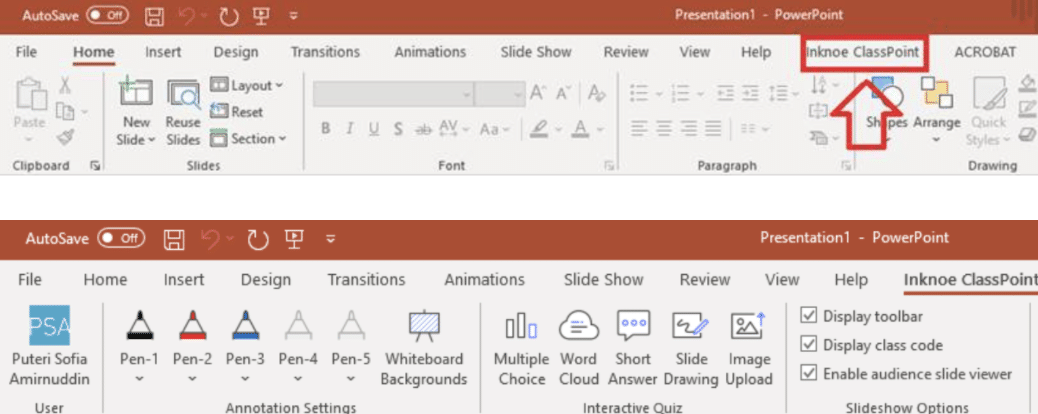
Guest lectures
Alternatively, educators can also invite guest speakers to supplement the content taught in the virtual class. The presence of guest speakers, albeit in a virtual format, can enrich students’ learning experience when they are able to link what they have learned to real-life practices. Assoc Prof. Dr. Kandappan Balasubramanian from Faculty of Social Sciences & Leisure Management – School of Hospitality at Taylor’s University is a proponent of ‘industry-integrated classroom’ which integrates industry in teaching and learning to close the gap between industry and academic world. The borderless learning environment has made it convenient for school teachers or lecturers to invite guest speakers, be it local or international speakers, to share their insights and knowledge on industry practices, and successful stories to motivate students in the virtual class.
In fact, it can also be said that the presence of guest speakers in the virtual class can facilitate student learning and motivation as students are provided with invaluable information on the current and emerging issues, trends and practices. The practical insights shared by the guest speakers can deepen students’ learning experience, foster students’ acceptance and understanding of what was taught by the educators in class.
Problem-based learning
For universities or colleges, it is a standard practice to arrange tutorial sessions to supplement lectures for each module. The aim of having tutorial sessions is to provide a platform for students to interact in discussions to demonstrate their comprehension of the topic taught during lectures through the tutorial activities. But how can educators ensure that the students truly understand what was taught virtually?
In order to engage with the new generations of learners in virtual learning settings, educators need to employ problem-based learning to encourage active engagements and interactions in the virtual class. There are concerns that students may not participate or there will be long silence as students will wait for the educators to reveal the answers. Educators are encouraged to train the students to deconstruct the problems by identifying all possible ‘hints’ or every single keyword in the problem question to enable the students to critically analyse the question to arrive at a particular solution.
Interactive learning
In fact, educators can also create a meaningful virtual learning experience for the students by engaging them in interactive learning with the support of technology either in synchronous or asynchronous classrooms. Examples of interactive learning includes the use of H5P, Kahoot!, Quizizz, Nearpod, Mentimeter, Powtoon and VideoScribe. The emphasis of interactive learning is to provide students with greater clarity, interaction and communication between the students and the lecturers.
With the use of interactive learning, students feel more stimulated and motivated to think, compare, ask questions, imagine, create new ideas and develop artistic sensibility. Assoc Prof. Dr. Kandappan Balasubramanian has also shared his experiences, in the IUCEL 2017 proceeding, in integrating interactive learning into the classroom which can foster creativity amongst the students through drawing, seeing, expressing, learning, and engaging. As digital learning has been accelerated by COVID-19 pandemic, the role of technology in education is becoming ever-increasingly important. Therefore educators are highly encouraged to incorporate pedagogical attributes into online learning in shaping students to be a holistic and digitized learner in the borderless environment.
Neuro-Linguistic Programming
From time to time, it has been said that local students fail to meet the expectations of prospective employers due to a lack of critical thinking skills and poor communication skills. Hence educators can consider adopting Neuro-Linguistic Programming (NLP) in the virtual classes. Educators can either self-learn on the application of NLP or to attend HRDF claimable training organized by training providers.
NLP is commonly known as the study of excellence which refers to the relationship between a person’s internal experience (neuro), their language (linguistic) and their patterns of behaviour (programming). NLP can train students to understand the conscious and unconscious patterns of thinking, communication and behaviour to create effective thinking, influences comprehension and improves advocacy skills. It is an initiative to develop students’ metacognitive thinking to be critically aware of their emotional intelligence – to learn to think of their own thinking. An example of NLP learning activity is where students can engage in a five-minute ‘speed-dating’ conversation on RuntheWorld platform. Students can then utilize NLP techniques to be mindful on how they interact based on their eye-contact, body gestures, hand movement, voice intonation and facial expression in order to practice communicating effectively. NLP can provide considerable improvements in a student’s soft skills which can also increase students’ self-esteem and confidence in speaking.
Gamification
Educators can also consider adopting gamification in teaching students virtually. Gamification is an uprising trend in education to stimulate, motivate and enhance students’ learning experience. Gamification involves a process of applying game elements into non-game-based contexts in an attempt to achieve learning outcomes. In other words, gamification can work in any subject that the teacher teaches (for example: English language, Mathematics, Geography and other subjects) by using badges, points, progress bars, prize rewards, trophies, avatar and leader boards in elevating students’ interest to learn. The adoption of gamification serves as an efficient tool to stimulate students’ thinking, promote active discussion in online classes, increase their level of motivation to learn remotely, be receptive to engage in virtual collaborations and to have friendly competition with peers albeit in a borderless learning platform.
Educators can introduce a points system for their subjects to award students for their attendance in online classes (for example: 2 points for early attendance) and also for points provided for their effort to share thoughts in discussion (for example: 10 points for the correct answer). Educators can then record students’ points in an excel sheet (as per the image below) so that the students will also be able to keep track of their own learning progress each week. Students will be driven with the points system to achieve more points as these points reflect their own level of understanding for the topics assessed. In fact, educators can also monitor students’ performance in identifying non-performers in virtual class so that a more personalized approach can be provided for the students.
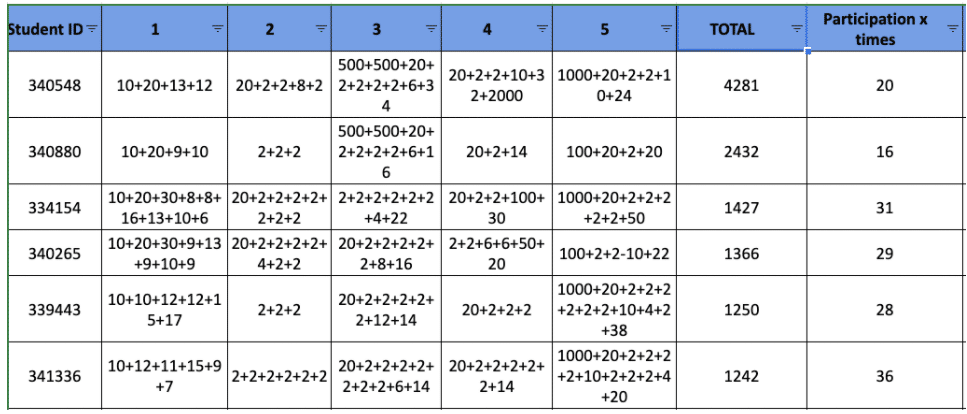
Gamification is proven to be an effective teaching strategy as experienced by a law lecturer at Taylor’s Law School. It was implemented in the English Legal System and English Land Law modules for the Bachelor of Laws programme when MCO was first announced in March 2020. In addition to monitoring the students’ weekly performance, top performers in each English Land Law virtual tutorial class were rewarded with internship opportunities at Malaysia Competition Commission. The top 5 performers were Adrian Chioh, Ong Eng Hong, Nimesha Thevananthan, Audrey Ng Wan Yin and Syakirah binti Ismail. What this showed was that students are open to embrace new learning strategies and their virtual learning experience with the integration of gamification has been positively enriching.
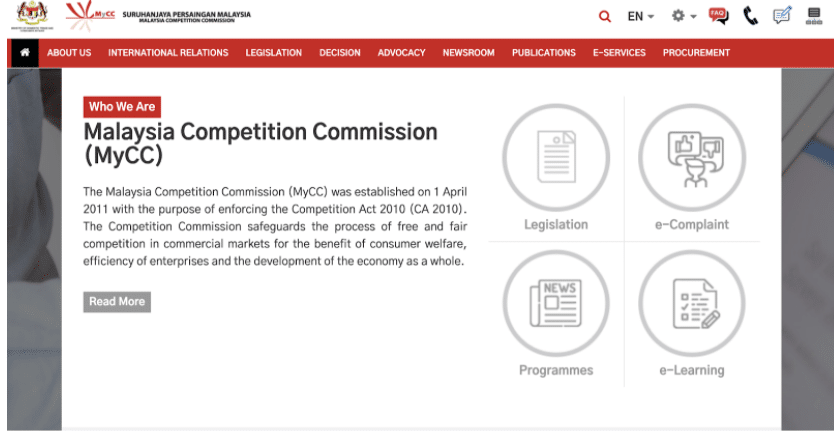
As educators are embarking again in virtual and remote learning in 2021, educators must be reminded not to revert to pre-COVID-19 ways of teaching and learning. Adopting the quote from John C. Maxwell, “you cannot be the same, think the same and act the same if the world does not remain the same.” Hence it is hoped that educators will embrace change to propel new and innovative teaching strategies to ensure that all students can thrive even in a borderless environment. This is a new dawn for the Malaysian education – one that can signify a brighter day for the students.
The Year That Was
Puteri Sofia is a believer that being young shouldn’t mean that you cannot achieve your vision early. Recently awarded with the "President's Award for Transformative Teaching and Learning," she is the pioneer in teaching law using Augmented Reality in Malaysia. Follow her on LinkedIn.











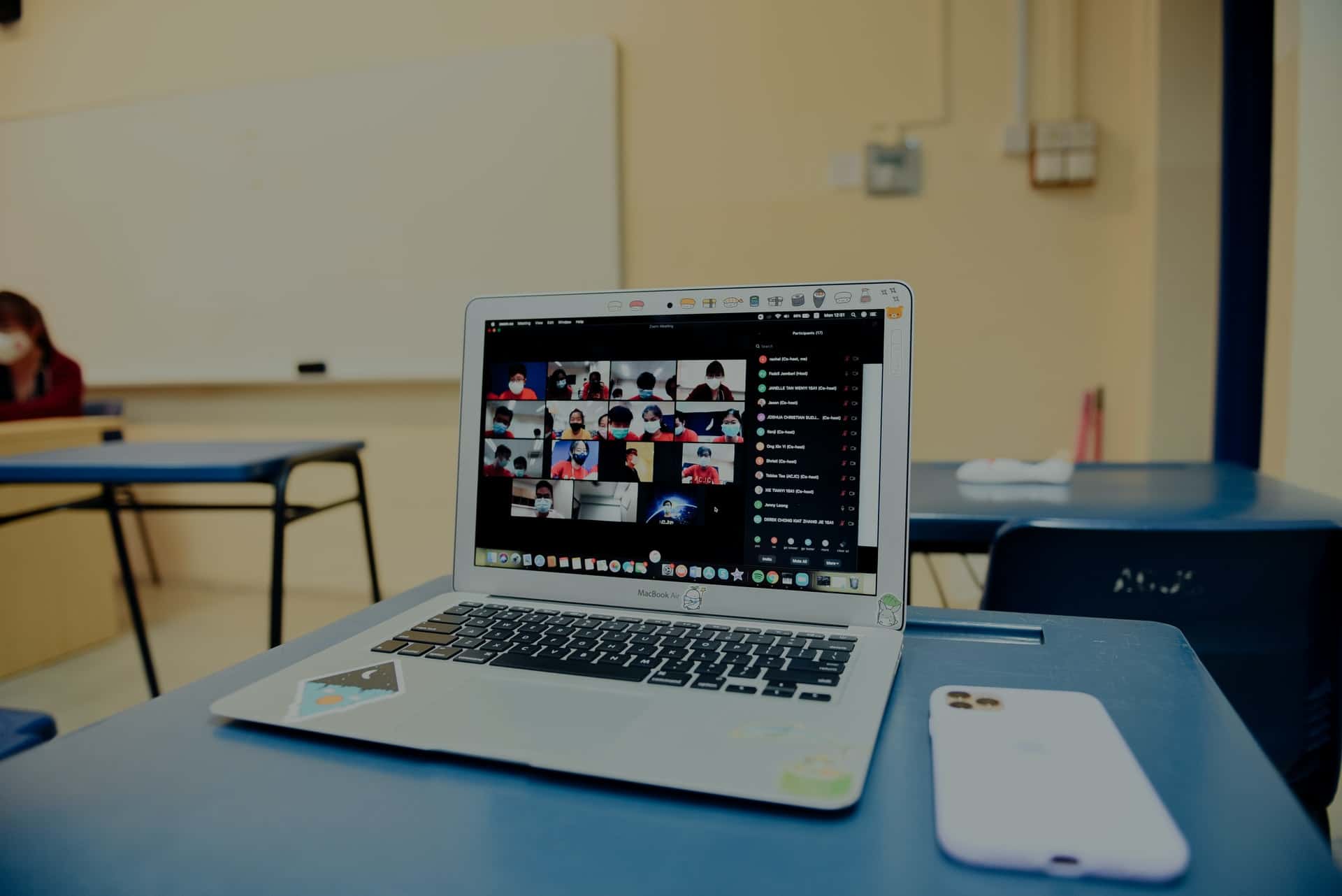
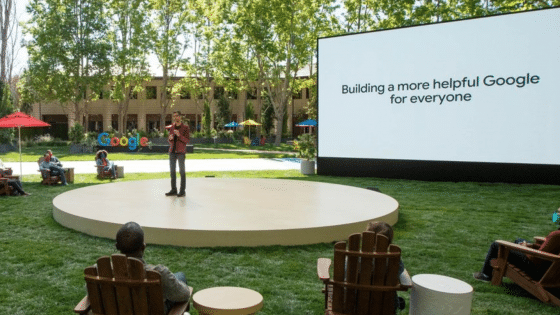







Raji
12th January 2021 at 6:22 pm
This is a very good article, very helpful, thanks 👍🏼
Andreas Dorn
13th January 2021 at 7:25 am
This is very helpful as it helps people to get themselves engaged in learning in these challenging times. Being locked away at home to fight the pandemic has an impact on the mental state of people, but actively looking to enhance their knowledge and skills will help them manage their mind, prevent stress and get ready for the time after the pandemic.
John Yan
15th January 2021 at 3:37 pm
Thank you for your effort in pioneering education technologies in virtual classrooms!